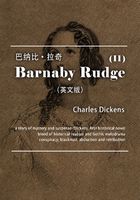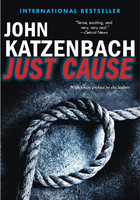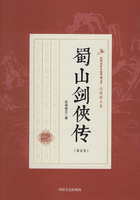In 1876 Prime Minister Disraeli proclaimed Queen Victoria Empress of India. Coming after a century in which British influence in India grew enormously as a result of brilliant commercial, diplomatic, and military enterprises, this was perhaps the greatest single act of imperial acquisition in history. A subcontinent with a vast population, with innumerable provinces, principalities and ethnic groups, became a mere colony of a small country thousands of miles away.
By way of cutting across the many local cultural barriers and consolidating its hold on India, Britain had introduced for the Indian elite a system of education that was based on English language and history and on European civilization. The education worked all too well. Several generations of aristocratic and middle class Indians became imbued with such Western notions as freedom and autonomy. These values led to the formation (in 1885) of the Indian National Congress and to agitation for independence, sometimes accompanied by violence. To meet this challenge, the British made some minor reforms by bringing a few prominent Indians into the councils of the Indian Government.
World War I accelerated the drive to freedom. Many of the best civil and military British administrators left India for more pressing duties in war-torn Europe, and the Indian notables saw that the country ran quite well without them. The war and its aftermath unleashed nationalist movements in Europe which also impressed politicians in Asia. Indians, moreover, expected to be rewarded after the war for the great help they gave Britain. Had not a hard-pressed Britain in turn given India promises similar to the ones it gave at the same time to Jews and Arabs, holding out (in August 1917) the prospect of "the gradual development of self-governing institutions"?
No wonder therefore that, once the war ended, the natural desire of a victorious Britain to return to the pre-war way of running India caused deep resentment. The tensions were exacerbated in 1919 when, in the course of a humiliating racist incident, British troops fired on an unarmed crowd in Amritsar, killing 400 and wounding 1500. Again Britain tried to defuse the agitation with reform rather than repression. Parliament passed the Government of India Act of 1919 (incorporating the Montagu-Chelmsford reform proposals). The Act seemed to concede to India eventual parliamentary self-government. It provided that in ten years a commission be set up to ascertain how far such self government could be carried at that time.
The Act pacified things only for a short while. Soon there were new irritants. At the Imperial Conference of 1926, the white possessions of Britain (Canada, Australia, New Zealand, South Africa) were ceded Dominion status—that is, independence and equality—even while sharing allegiance to the Crown and membership in the British Commonwealth of Nations. The Indian nationalists were presumptuous enough to ask that the same privilege be extended to colonies with people of color and, when Britain refused, renewed agitation and riots erupted.
These latest disturbances made their impact. In 1927, two years ahead of time, the British government appointed, as the 1919 Act had mandated, a commission headed by Sir John Simon to study the future of India. The new Viceroy of India, Lord Irwin (the same man who, as Viscount Halifax, would be the Establishment's preferred choice for the Prime Ministry in May 1940) was sympathetic to the nationalists. He was willing to cut corners for their cause. So just before the Commission could make its apparently docile report, the Viceroy (on 31 October 1929) promised India Dominion status. He was working together with the Socialist Prime Minister Ramsay MacDonald and with the Leader of the Conservative Party, Stanley Baldwin. The latter urged his followers in Opposition to cooperate with the Labour Government in its liberal policy towards India.
If the Viceroy's undiplomatic gesture was meant to appease the Indian nationalists, it boomeranged. The Indian Congress declared independence, and Gandhi began a fresh round of civil disobedience. He and some 50,000 followers were jailed. They soon had a good cause for martyrdom: the report of the Simon Commission, finally published in June 1930, did not recommend Dominion status. (The Viceroy had probably tried to undermine or influence it for that reason.) It recommended instead that the political future of India be the subject of negotiations among the British government, the Indian Government, and the Indian princes, who ruled absolutely their various states.
In November 1930, accordingly, began a Round Table Conference in London. The participants soon divided themselves into committees to draft a federal constitution. The Congress boycotted the Conference. The Viceroy realized that the Indian moderates who did attend could not deliver their country; to make the conference work, he needed the participation of the Congress. He therefore released Gandhi from jail and conferred with him. The negotiations between the two men (the "Gandhi-Irwin Pact" of March 1931) resulted in a cessation of civil disobedience, acceptance of a continued British role in such matters as foreign affairs and defense, and agreement for the Congress to send representatives to a second series of Round Table Conferences. In return, Britain would revoke all penalties on the civil disobedience campaigners. In a further attempt by the government to mollify the nationalists, Simon and his commission members were barred from the Conference, and the emasculated Report was shunted aside.
Churchill's role in the story begins in late 1929, when the Viceroy's slighting of the Simon Commission aroused his ire. He had lots more to be angry about a year later when the Round Table Conference, which he insisted had no legal standing, started to draft the constitution for India. In a series of sharp and frequent dissents during the following months, Churchill found himself opposing not only the Socialist Government but even many of his Tory colleagues.
In mid-1931, he collected his speeches and articles and rushed them into print. Asking Thornton Butterworth to publish the material, he wrote, "I have taken much more trouble with them than with any book I have ever written." That sounds like a bit of Churchillian hyperbole. The publisher was closer to the mark when in his response he said that the book would "nourish the seed… which you have so carefully sown." For the resulting work, INDIA, was meant to be a source of ammunition for the ongoing political guerilla warfare being carried out by Churchill and his small band of "Die-hard" followers in the House and in the hastily formed Indian Empire Society.
It was typical Churchillian strategy. In this case, the speeches on India were meant to awaken the public to the peril facing the Empire; to rally those conservatives who were troubled by Baldwin's policy but reluctant to act as their conscience urged; to disrupt the temporary Baldwin-MacDonald alliance; and, above all, to smash the legitimacy of the Round Table Conference.
II
Since he is conscious, even proud, of fighting an unpopular and uphill battle, Churchill vehemently refutes the charges leveled at him in the current debate. These are, in brief, that he knows little about the India problem; that he advocates force and violence; and that he has no alternatives to offer to maintenance of the status quo.
As to the accusation of ignorance and in-experience, he cites his role of negotiator in the settlement of the Boer War in 1906 and of the strife in Ireland in 1922. On the strength of these, he lays claim to expertise in the matter of bringing self-government into being, of knowing the importance of gradualism and compromise. Perhaps he imperils his argument by inconsistently maintaining that India is a far different, far more complicated case. But India was more complex, a heterogeneous sub-continent with a rigid Hindu class structure. Churchill's defenses of the Untouchables were more than opportunism; they were, equally, manifestly an expression of his sympathy for the underdog.
Potentially more damaging is the charge of militarist, of war-lover or war-monger, because those epithets had hounded Churchill since 1911 (when he became First Lord of the Admiralty) and especially since the years after World War I. He iterates that he does not favor force and that, in any case, force is unnecessary.
In countering an accusation, it is always good (as Churchill recommends in his other works) to be on record beforehand. Luckily he was. The 1919 British massacre of Indians in Amritsar had prompted Churchill to intervene in a speech of 1920 which roundly condemned the incident as a form of behavior that was not only counter-productive but utterly out of accord with British tradition and values.[1] He now shrewdly adds this speech to the collection of utterances from 1929–31. It is not only a prelude but also clear proof of his peace-loving credentials.
How then could a peace-loving man sound like a sabre rattler? He can if he is, as Churchill was, a student of Machiavelli. Churchill harps upon the Machiavellian theme that one must be tough in order to be gentle. In this view, the Viceroy has got things upside down. Trying to appease the nationalists by first anticipating and undermining the Simon Report and then treating Gandhi as a privileged person, he is merely raising the demands of the Indians. He eventually finds himself having to resort to force on a far larger scale than would otherwise have been necessary. Good intentions and "flowery speeches" only result in repressive measures; abhorrence of using force early brings about great bloodshed later. By contrast, a little force used judiciously and as part of a coherent policy will prevent widespread violence.[2]
In response to the third accusation, of being devoid of alternative ideas, Churchill insists that he has plenty of them. If he opposes both the appeasing British politicians and the unappetizing Indian nationalists, both the illegal (according to him) Round Table Conference and the irrelevant Blue Book (the proposed constitution) that resulted from it, he favors instead the Act of 1919 and the Simon Report of 1930, both of which allow for gradual self-rule. Specifically, he favors a policy of regionalism or localism. Britain should foster self-government in each of the many diverse Indian provinces before granting so heavy a responsibility to the central Indian Government. As in the United States, Canada, and elsewhere, first comes the unit, then the federation. It would be self-government bubbling up from the bottom, solidly rooted in the local peoples and traditions, instead of being imposed from the top by a political elite on a society—a large set of societies, really—not yet ready for it. Even Europe, with all of its advancement and civilization, has not yet been able to federate. This position, one must concede, has a plausible Burkean ring to it.
A principle of military strategy that Churchill often refers to in his writings is that, when confronting two enemy armies, you must exercise choice. Use the smallest possible force on the defensive to pin down the weaker of the armies while gathering maximum power for the destruction of the other army; then combine your forces for the elimination of the remaining army. In like manner, even while carrying out a defensive holding action in this debate, Churchill brings the attack to the enemy. Or, to alter the metaphor, he follows the old maxim that the best defense is offense. And, however unpopular his position might have been in political circles, he does mount a formidable array of arguments.
To begin with, he hammers away at the supposed probity and purity of the Indian nationalists. They constitute, he says, a self-appointed, unrepresentative clique of professional politicians, financial tycoons, princes and intellectuals. These men have nothing in common with the average Indian, who is concerned only with physical survival.
Such an argument is familiar. Self-styled "freedom fighters" rarely are a product of democratic procedures (just who, for example, elected the Algerian FLN, the Viet Cong, the IRA, the PLO, the Sandinistas?). Cunning defenders of the establishment are quick to exploit this technicality. Nor is Churchill's further observation, that the Indian plutocrats were eager to eject Britain so that they could themselves better exploit the huge wealth and vulnerable masses of the country, without its merit. Gandhi (like Socrates) was surrounded by some very rich and aristocratic types.
On the other hand, even patricians must be allowed to have ideals, and every movement, no matter how noble, will attract its quota of vultures and crazies. Tartufferie is an affliction not confined to seventeenth-century French Catholic circles. The existence of such a blight cannot be allowed to distract one from the principles of a great faith or movement, principles which stir millions of people. Besides, what is this grandson of a duke, a grandson used to having the best of everything, doing railing at patricians as a class? And would Churchill say that exploitative British plutocrats and oligarchs did not then exist, either in Britain or in India?
A much more telling point of Churchill's is that giving autonomy to India is to consign the caste of Untouchables, numbering some sixty million, to permanent subjection, and to leave the Moslems, numbering some seventy million, at the mercy of the far larger Hindu community. This is an argument left over from the Boer War of three decades earlier. To a world which sympathized with the heroic Afrikaners seeking independence from the wicked old British Empire, Britain presented itself (with Churchill's concurrence) as the truly liberal side because only the British presence kept the South African blacks from being exploited by the freedom-loving whites.
It is a venerable paradox, analogous to that of the American South seeking in the early 1860s the freedom to subjugate. Hypocritical statements that result in a double standard are the world's oldest professions. Churchill is but updating Dr. Johnson's unanswerable question at the time of the American Revolution: "How is it that we hear the loudest yelps for liberty among the drivers of Negroes?" Here is Churchill's more verbose but no less biting version:
These Brahmins who mouth and patter the principles of Western Liberalism, and pose as philosophic and democratic politicians, are the same Brahmins who deny the primary rights of existence to nearly sixty millions of their own fellow countrymen whom they call "untouchable." …And then in a moment they turn around and begin chopping logic with John Stuart Mill, or pleading the rights of man with Jean Jacques Rousseau.
British care for the untouchables is part of the larger mission of keeping peace among religions and ethnic communities sundered by superstitions and primordial hatreds. Churchill repeatedly warns that British withdrawal would bring about a renewal of the warfare that has been going on for centuries. Britain has a clear duty to guard the Untouchables, the Moslems, and the rest; it could not hand them over to be "bled and exploited." Already in March 1931 at Cawnpore, Hindus attacked Moslems, and 300 people died in three days of rioting. British troops—the very people whom Gandhi et al wanted out—ended the riot. In fact, the vast majority of the fallen are not the victims of British arms but of "religious fights between Moslems and Hindus…. The feud is only at its beginning."
His argument rises to an impressive climax when he insists that the very term "India" is misleading. India is not a country but a sub-continent. It contains a far larger number of language and religious groups than does Europe. Something like the dream of a united Europe, a reality in Ancient Roman days and revived for a moment under Napoleon, has been realized in India by Britain under far more difficult conditions. To throw this away looks more like a step backward than forward.
Certainly it would not be progress if the newly independent India became a tyranny or oligarchy. But that is exactly what will happen, Churchill implies, in a country that, filled with illiteracy, is not ready for democracy. Those measures of self-government which the British introduced in the past have not worked out at all. And if independence did not create a tyranny or a Hindu despotism, it would break up India again into the many warring entities that existed before Britain imposed a blessed unity on them. Always he holds up China, riven by wars and close to anarchy, as an example of what can happen to a large, heterogeneous Asian nation were Britain to leave.
The heart of Churchill's argument is the "white man's burden" (though of course he does not use this Victorian slogan). A small altruistic band of some tens of thousands of British civil servants has brought law and order to this vast continent of 350 million people. Britain has a moral obligation to continue its civilizing mission in India. It would be wrong to stop a policy which has produced such great strides forward in pacification, education, food production, hygienic standards, and legal procedures.
Why, if the results are so splendid, is Britain faltering in its task? The problem, as Churchill sees it, is not with the Indian agitators—devious, hypocritical, corrupt and fanatic though they may be in his eyes. They have, after all, been around for a long time. "The fault, dear Brutus, is in ourselves." The British public, coping with the beginnings of the Great Depression, is apathetic about the whole question—with the possible exception of textile-dependent Lancashire. But that apathy is a symptom of a reordering of priorities. Mid-nineteenth century Britain would not have flinched at paying the cost of the civilizing mission. Modern Britain has lost faith in that mission. It believes that the Indians have some merit on their side. The heresy of "Little England," of tending to domestic matters rather than manning the ramparts of an empire, has won out. In confronting the Indian troublemakers, Britain's morale is therefore sapped by defeatism, loss of will, lack of confidence, and a compulsion to appease. It is content to allow the politicians of all three parties in "collusion" to turn over political power to the Indians.
This, in Churchill's reading of events, is a form of self-fulfilling prophecy. Those Indians who serve Britain loyally in the civil and armed services see that the future lies with the agitators rather than the civilizers. They are making understandable preparations to switch allegiance from one side to the other. They do not want to suffer the opprobrium, on the morrow of the nationalists' victory, of having been associated with the losing side. Thus it is that British apathy and defeatism, not the momentum of the Indians, is guaranteeing the victory of the agitators.
If the British public does not care, why should anyone bother? The best that Churchill can do is fall back on a version of the Rousseauist "General Will." That "sleeping giant," the British public, once it is apprised of the larger picture (which he himself does his best to outline in these speeches) will come out of its lethargy and do what is right and noble. All that it needs is a heightening of awareness, with an attendant reinfusion of confidence in itself. And that can come only when the layers of illusion are ripped away, when everyone is forced to face the facts, the practical politics of the case. Self government in India is ruled out by nothing less than "those limits arising from Time and Facts." As Time eventually reveals all the Facts, the march of events, he is sure, is on his side.
To help the public out of its apathy, Churchill is not above stooping to inject a healthy dose of selfishness into the discussion. Altruism, honor, and duty need not exclude self-interest. From time to time, he mentions the adverse impact of Indian independence on Lancashire commerce ("the final ruin of Lancashire") or on the British food supply. What would happen, moreover, to the rest of the British Empire if it lost its centerpiece? How would the "Orientals"—the dark-skinned, non-European peoples, who respect only power and condemn appeasement, signs of weakness, and loss of face—react to the departure of India? Never mind Britain's mission; the loss of "that most truly precious jewel… would mark and consummate the downfall of the British Empire…. [It would be] final and fatal… reduce us to the scale of a minor Power."
Observers are free to speculate as to whether this last point is merely a sop to those who are too crass to be moved by appeals to duty, altruism, honor and the civilizing mission; or whether, as Marxists and economic determinists would have it, these are the real reasons for opposing independence and the rest is mere moralizing pabulum for the masses. Yet whatever his conscious or unconscious motives might be, Churchill carries the battle forward with great zest. He realizes that on this India question he stands—among politicians of the first rank—virtually alone. He will see this crusade through to the end; he will arouse the British public; he will fight the "three party collusion"; he will gladly sacrifice his chances for future government office. He almost takes a perverse pleasure in the splendid isolation of his principled stand. As a sign of integrity, it is quite different from the behavior of Lloyd George, who, "when politics come in at the door, his zeal for the retention of India flies out by the window."
III
Setting aside the merits of the substance of these speeches, one must admit that as rhetorical exercises they are impressive. They were made when Churchill was at the height of his oratorical powers and one of the best speakers in the British House of Commons. While not always on a level with some of the masterpieces of other phases of his career, they have their moments.
Take this image:
The great liner is sinking in a calm sea. One bulkhead after another gives way; one compartment after another is bilged; the list increases; she is sinking; but the captain and the officers and the crew are all in the saloon dancing to the jazz band.
It is probably not an original analogy, and to Indian nationalists and British liberals it is incorrigibly wrong-headed. But for a conservative sounding the tocsin, it strikes just the right note. Or we have this anecdote apropos the flabby British will and the need for some Machiavellian peremptoriness:
Remember the story of the Spanish prisoner. For many years he was confined in a dungeon…. One day it occurred to him to push the door of his cell. It was open; it had never been locked!
There are numerous deft touches of irony and sarcasm, as when he refers to himself and his followers with a climactic, appropriate word: "A few die-hards and reactionaries, and other untouchables." Or these:
There was great relief, even enthusiasm, when it was known that although the Viceroy had been forced to let the rioters out of prison, he had firmly and successfully resisted the proposal to lock up the police in their place.
When Mr. Gandhi went to the seashore a year ago to make salt, he was not looking for salt; he was looking for trouble.
It was a victory of law-breakers, who have consented for the time being partially to lay aside their law-breaking because hopes have been held out that before very long they will be law-makers.
Here in the centre of the Empire he [Gandhi] will discuss with British ministers and politicians the best means for breaking it up.
…by the dress he [Gandhi] wore—or did not wear.
The July 1920 speech on Amritsar managed to turn around a House hostile to the government's policy. It is a finely crafted piece. He begins in a calm, authoritative, professorial voice by outlining the general rules governing the disciplining of military officers. There follows, with reference to the case of the commanding officer at Amritsar, a discussion of the prudential rules of crowd control. This turns into a passionate indictment of terrorism as the worst trait of Bolshevism and as wholly inappropriate for Britain. Then he takes up the details of the massacre at issue, analyzing its topography, logistics, and chronology and dispassionately rendering judgment on the lapses and failures of those in charge. A glance at the larger historical context is followed by observations on how the latest military technology facilitates the role of the imperial power and therefore makes panic and massacre even more inexcusable. He concludes by invoking the sense of comity that binds Briton and Indian.
The speech has a subtle blend of minute analysis and comprehensive vision, of scientific precision (who shot whom, when, where and why) and emotional sweep (indictment of Bolshevism and terrorism, celebration of the British way and of imperial comradeship). Legal, military, and historical minutiae are firmly grasped and interpreted. Opposing views are aired and disposed of. Small wonder that contemporaries called it "unanswerable… amazingly skilful… brilliant."
Or take the speech in the House of 26 January 1931. From a review of the events of the previous year and a half (with numerous subtle criticisms of the Viceroy, who was, ironically, to be his rival again in early May 1940), he moves to an indictment of the extremism of the Indian nationalists and the spinelessness of the British government. Then comes a statement of his own principles and proposals—balanced with a good humored gibe at the opportunism of Lloyd George (his ally in years long gone)—and his own role in the past as midwife to new nations, with the lessons to be drawn from that experience. Interspersed are attacks on the unreadiness of the Indians for self-government and on the apathy of the British public, climaxed with the vivid image of the sinking ship.
The speech in the House of 12 March 1931 on the "Gandhi-Irwin Pact" is a minor masterpiece of ironic and satiric sallies aimed at Gandhi, the Viceroy, and once even at Churchill himself. The long paragraph describing the seven steps by which the Viceroy unwittingly raised the stature of Gandhi has Shakespearean reverberations (cf. Touchstone on diplomacy). It is capped with the delicious conclusion:
This series of steps ought to be preserved as a patent prescription for building up the reputation of a revolutionary leader.
Gibbon and the fall of the Roman Empire are also trotted out for good measure. In addition, this speech contains his most eloquent defense (at least in this book) against the charge of being a man of violence.
The speech of 18 March 1931 begins with defiant back-to-the-wall rhetoric and then reduces the issues to a simple clash between the desire of a small clique for Indian autonomy and the duty of Britain to maintain progress, law, and order. It dwells on the inequities and horrors which would result were the desires of the former to triumph over the duty of the latter. More defiance and more pride in his solitary stand open the speech of 26 March 1931, followed by more dire predictions of woes to come.
As William Manchester sums up aptly: "This was Churchill at his most effective. His prose soared. His commitment was total…. And yet…" As far as contemporary priorities and the judgment of history are concerned, "It was all as sounding brass or a tinkling cymbal." For, according to R.R. James, here is some of Churchill's best oratory devoted to a cause that is outside "the facts of the case and the pace of events."
IV
These negative conclusions refer to the fact that Churchill's campaign did not serve to turn the tide, despite some promising moments. At first the political establishment and the press tried to drown him out. Even those Conservatives who agreed with Churchill's sentiments would not break ranks over the issue. People thought that his arguments were window dressing, that his real goal was unseating the incumbent premier and becoming the next Conservative Prime Minister. That, after all, was the way Churchill's father had gone down in flames.
By early 1931, though, Churchill, by the sheer force of his determination and his rhetoric, had brought some of the press lords round to his side, threatened Baldwin's control over the Tories, and become leader of the "Die-hards." But then he crashed: when he brought the crusade against his party from the hustings, the meeting hall and the newspaper into the hallowed chamber of the Parliament itself, he crossed some invisible boundary, broke an unwritten code, threw down the gauntlet at Baldwin. From being an eccentric, he had become a dangerous man. Soon he left the Shadow Cabinet. His decade in the wilderness had begun.
Historians consequently see this Indian campaign as one of the major stains on Churchill's record. What serves to darken the stain was that within a few years he would be mounting a somewhat similar-sounding campaign against Hitler, but have no vantage point or leverage. The man who tried to strangle Bolshevism and Indian nationalism in the cradle had twice been left behind by events. Whether right or wrong, he had in recent years established a poor track record. He had long seemed trigger happy; now he was perceived to be at last antiquated and deluded. When the wolf, dressed in blackshirt clothing, really did appear, there was naturally little interest in what Churchill had to say. His warnings created a deja vu feeling. In expending so much political capital on a forlorn issue, Churchill was left impoverished when it came to confronting a living one. The Indian debacle delayed the moment when Britain would awaken to the new Germanic threat because Hitler at first seemed to be, judging from Churchill's familiar rhetoric, only another Gandhi.[3]
The doomsday rhetoric—"one of those supreme issues which come upon us"—used in the Indian campaign, moreover, had already been used, and sometimes overused, in such crises as the "People's Budget" election of 1909–10, World War I, and the anti-Bolshevik crusade. It was becoming conventional, predictable, wearisome.
For a great stylist, Churchill is terribly oblivious to the nuances of the language he uses. When he rules out Dominion status "at the present time," does he not see that he is using the euphemism common to every rejection letter, that it really means "no" or "never"? To say that there is "no theoretical limit to the extension of Indian constitutional development" but that Britain reserves "an equal right to restrict, delay, or… reverse" is to give and take, to equivocate, to remove the foreseeable future. To add "there is no chance" of dominion status "in our lifetime…. We intend to remain… for a very long and indefinite period" is to enrage the nationalists, to kill hope—and to be wrong in the bargain. Many a dying regime has learned that the hard way.
Also injurious to Churchill's reputation is the extremity of the vituperation he directed at Gandhi. That Hindu ascetic was being called a saint even in his own time, and he has become something of a modern hero. While he undeniably had his flaws, the language Churchill uses about him sometimes comes too close for our comfort to what he would soon use about Hitler: "A fanatic… a seditious Middle Temple lawyer, now posing as a fakir of a type well-known in the East, striding half naked up the steps of the Viceregal palace…. This malignant subversive fanatic…. Millionaires on sweated labor… Gandhi-ism [will have to be] crushed." Here is a serious lack of calibration, of nuance; a man who has difficulty distinguishing Gandhi from Hitler is missing a moral cogwheel.
A serious defect in the India campaign is that Churchill was only selectively outraged. The various references to "Orientals" as being different from white European humanity in this or that way seem archaic when not fatuous. The Indian nationalists are dismissed for having acquired only a "veneer of Western civilization." The inferiority of the Indians and the altruism of the British are too much taken for granted. Are the Indians as helpless, primitive, and ignorant as he thinks, or merely tradition-oriented? When he repeatedly conjures up the image of the typical British civil servant in India—disinterested, dutiful, selfless—he overlooks the likelihood that he may be talking about the ideal, not the norm.
But even if these administrators were as good as he thinks, there are inherent in the relations between a governing and a governed class many kindling points. The gradual accumulation of these can lead to agitation for independence. Churchill is blithely unaware of the spiritual pride, the petty tyrannies, the daily diet of slights and slurs that so readily and unconsciously become part of the routine of an "advanced," tutorial, lordly race ministering to the moral and intellectual needs of a dark-skinned "uncivilized" race. Perhaps people near the end of the twentieth century are better able to detect such subtleties than someone like Churchill, who passed his formative years in the heyday of the Victorian period. Yet even he, at the time of the speeches, could have learned much from such a book as E.M. Forster's A PASSAGE TO INDIA (1924).
Stanley Baldwin has much to answer for at the bar of history, but in this matter he was right. While Churchill carried on about how the facts were against Indian independence, Baldwin likewise urged people to face up to the truth. The principle fact "today," he concluded, was that "the unchanging East has changed." With that one nugget, the usually pedestrian Baldwin shoots the usually eloquent Churchill, with his romantic, Victorian, imperial rhetoric, right out of the water.
Another psychological fact that eluded Churchill is that people are irrational and perverse enough to prefer to be misgoverned by rascals of their own kind and community than to be governed in the best possible way by altruists from the outside. The young adventurous Churchill had observed this, but the middle-aged conservative politician no longer understood it. To believe, furthermore, that strong measures like deporting the Congress leaders and putting Gandhi on trial would end the troubles is to misunderstand the nature of revolutionary movements and the charisma of martyrdom. It is to apply the precepts of Machiavelli in a mechanical fashion without regard to the circumstances. A fallacy which Machiavelli himself warned about, it is bad political science as well as bad psychology.
What then, besides beautiful orations, can be salvaged from INDIA? For one thing, Churchill's prophecies were not so erratic. He warned about sectarian strife and Hindu domination in the wake of the British departure; in fact, several million lives were lost in fighting between Hindus and Moslems during the weeks and months following independence. The Sikhs even today resort to violence against what they consider Hindu oppression. He warned about balkanization of the subcontinent masquerading as a nation; in fact, Moslem Pakistan broke away from a mainly Hindu India only to have Bangladesh in turn break away from it, and tensions and clashes have long reigned in places like Kashmir. He warned about the depredations of the princes and magnates; in fact, no one can say that the gap between unbelievable wealth and harrowing poverty is any smaller now that it was a half century ago.
Most Pakistanis and Indians would, of course, say that all this was the price necessary for independence and dignity and that it was well worth paying. As a matter of fact, Gandhi—the pacific, saintly, civilly disobedient, cheek-turning Gandhi—said it at the time, and is even quoted herein by Churchill to that effect: "There may be civil war and serious communal strife when we get swaraj [independence], but only for a little while." A Tory in 1776 might have reasonably argued that Britain's holding on to the American colonies would spare them the fate of undergoing either balkanization or a brutal civil war, and he would have been correct. Yet how many Americans wish to undo the Revolution for that reason?
One can easily get lost in the maze of "what might have been" and of arguable choices at the juncture of power politics and morality, of "is" and "should." The facts, therefore, are the desideratum. The facts are that Churchill may be declared (1) right on many of the details (the prophecies of disaster); (2) wrong on the larger trend (the "winds of change" as Macmillan was to call it), in the sense that he lost the argument; and (3) neither right nor wrong on the moral question. On this last item, the words he used elsewhere are relevant: "In all great controversies much depends on where the tale begins," i.e. what one's assumptions or definitions are. In other words, does one set up as one's highest value "civilization" in the modern European sense (rational, scientific, cosmopolitan, orderly, individualistic, egalitarian) and keep Britain in India, or does one choose the Asian version (organic, pre-scientific, autochthonous, traditional, communal, hierarchical) and throw Britain out? History is amoral; it knows not "right" and "wrong," only victory and defeat.
One last argument can be made on behalf of Churchill's lost cause. Assessing his reactionary posture here is complicated by the fact that (as Churchill himself pointed out in THE SECOND WORLD WAR) human judgments are terribly distorted by the outcome—that is, by the role of luck. Thus in one of his first books, young Churchill said that, were the Empire and London to face extinction, some men at least would have the heroism to go under in their defense. He brought that sort of patriotic, kamikaze sentiment to bear on Gandhi and India in 1931, and on Hitler and Germany in 1940. He lost the first battle and therefore is condemned; he won the second and therefore is praised. Yet, except for the different results, it was the same obsessive Churchill in either case. He revered "great fighters" for lost causes, even wrote an essay on that subject, and became one himself—with mixed results.
We would like genius to be discerning and moderate, to be a little bit more like the rest of us. Few geniuses have been so. Churchill had the vices of his virtues. In judging him we err by unconsciously depending on the wisdom of hindsight. No one could tell at the time how the campaigns of 1931 and of 1940 would turn out. If responsible voices across the political spectrum in 1931 told Churchill that the imperial age in India was over, just as many responsible voices in 1940 said that Hitler could not be beaten and should be negotiated with: Ambassador Joseph P. Kennedy, Lloyd George and George Bernard Shaw, to name but a few famous ones. If Churchill had been amenable to prudence in 1931, he would have spared everyone embarrassment, but that same prudence would have dictated in 1940 negotiations with Hitler.[4] Only the pugnacious mule of 1931 could see his way through the impossibilities of 1940. A more civilized, common-sensical soul like Halifax did negotiate with Gandhi. And, had Halifax rather than Churchill been made Prime Minister on 10 May 1940, he would have certainly negotiated with Hitler.
Genius exacts its high price. If we like the way 1940 turned out, we have to comprehend 1931.
Manfred Weidhorn















